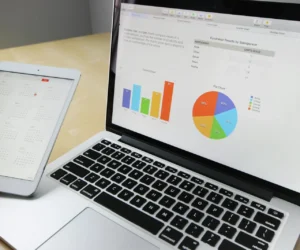
Orbia, a leading corporation (BMV: ORBIA*), has unveiled its unaudited financial results for the first quarter of 2024, reflecting the prevailing challenges in the market landscape. Factors such as sustained high interest rates, reduced prices, project delays in both private and public infrastructure sectors, and subdued demand in Europe have contributed to the market’s weakness.
Despite these challenges, Orbia has maintained strong fiscal and operational discipline, actively managing controllable factors amidst the challenging market conditions.
Key Financial Highlights for Q1 2024:
- Net revenues amounted to $1.9 billion, marking an 18% decrease compared to Q1 2023, primarily attributed to reduced volumes and prices in Connectivity Solutions, Polymer Solutions, and Building & Infrastructure segments.
- EBITDA stood at $253 million, reflecting a 46% decrease, driven by lower revenues and adverse effects from the appreciation of the Mexican Peso across various business groups.
- Operating cash outflow amounted to $50 million, declining by $217 million primarily due to lower EBITDA.
Sameer Bharadwaj, CEO of Orbia, commented on the results, stating that while the first quarter figures align with their previously shared guidance for the first half of the year, prolonged high interest rates may further delay demand recovery. He emphasized the company’s commitment to maintaining leading market positions, stringent financial discipline, and ongoing business optimization initiatives to ensure readiness for market recovery.
Further breakdown of the financials reveals:
- Decrease in revenues across Connectivity Solutions, Polymer Solutions, and Building & Infrastructure segments due to weak demand and lower prices influenced by the high interest rate environment and PVC capacity exports.
- Cost of sales decreased by 12%, driven by lower volumes and reduced raw material and input costs.
- Selling, general, and administrative expenses decreased by 3%, primarily due to cost reduction initiatives offsetting inflationary pressures.
- EBITDA margin decreased from 21% to 14%, attributed to lower volumes and prices, particularly in key segments.
- Financial costs increased by $38 million year-over-year, mainly due to foreign exchange impacts and higher interest expenses.
- Taxes decreased by 89%, primarily driven by the earnings mix, currency appreciation, and inflation.
- Net debt increased to $3,678 million, with a net debt-to-EBITDA ratio rising from 1.84x to 2.96x year-over-year, driven by decreased EBITDA and higher net debt balance due to currency appreciation.
Despite the challenges, Orbia remains focused on its long-term strategy, supported by ongoing strategic growth projects, aiming to generate sustainable shareholder value while maintaining a robust balance sheet.




